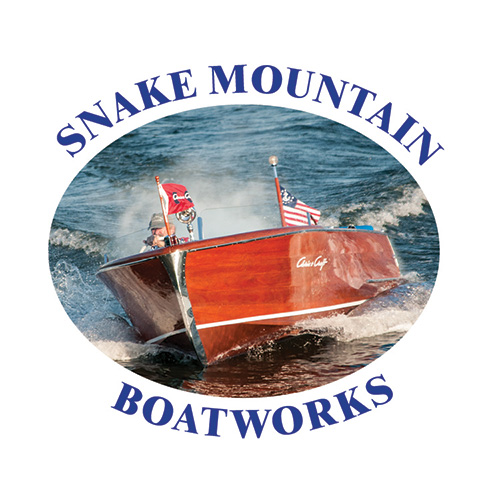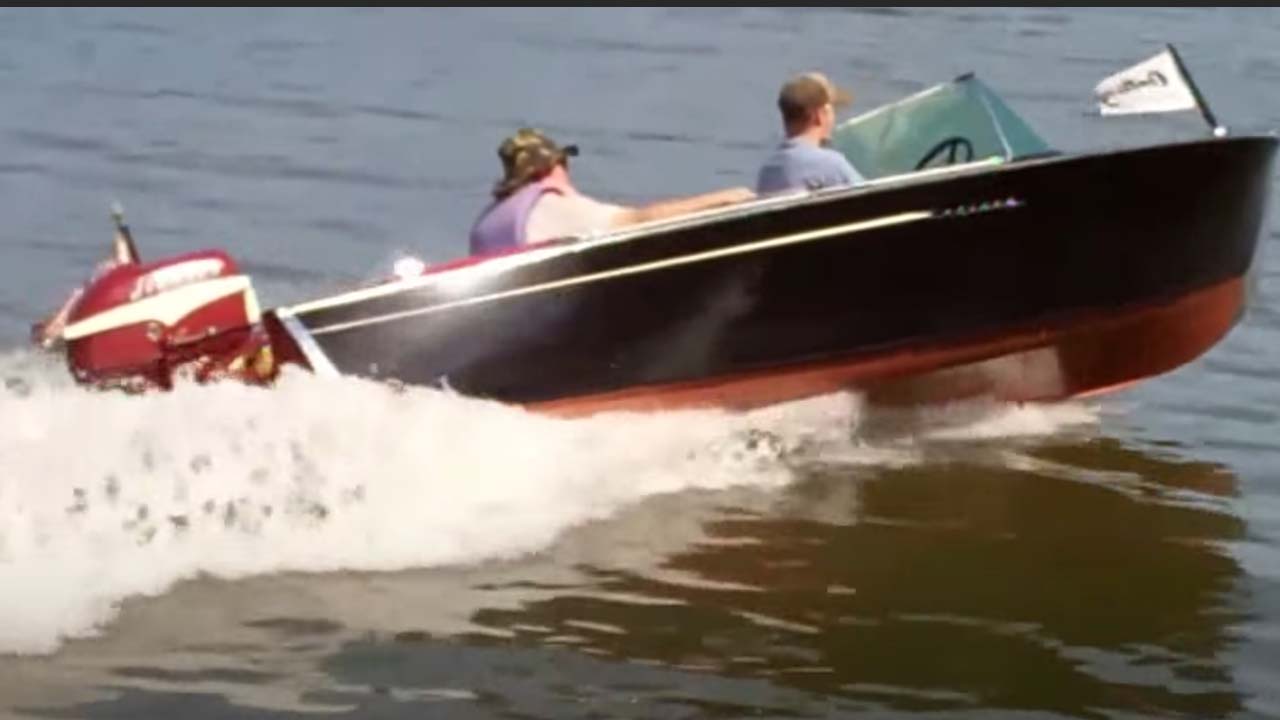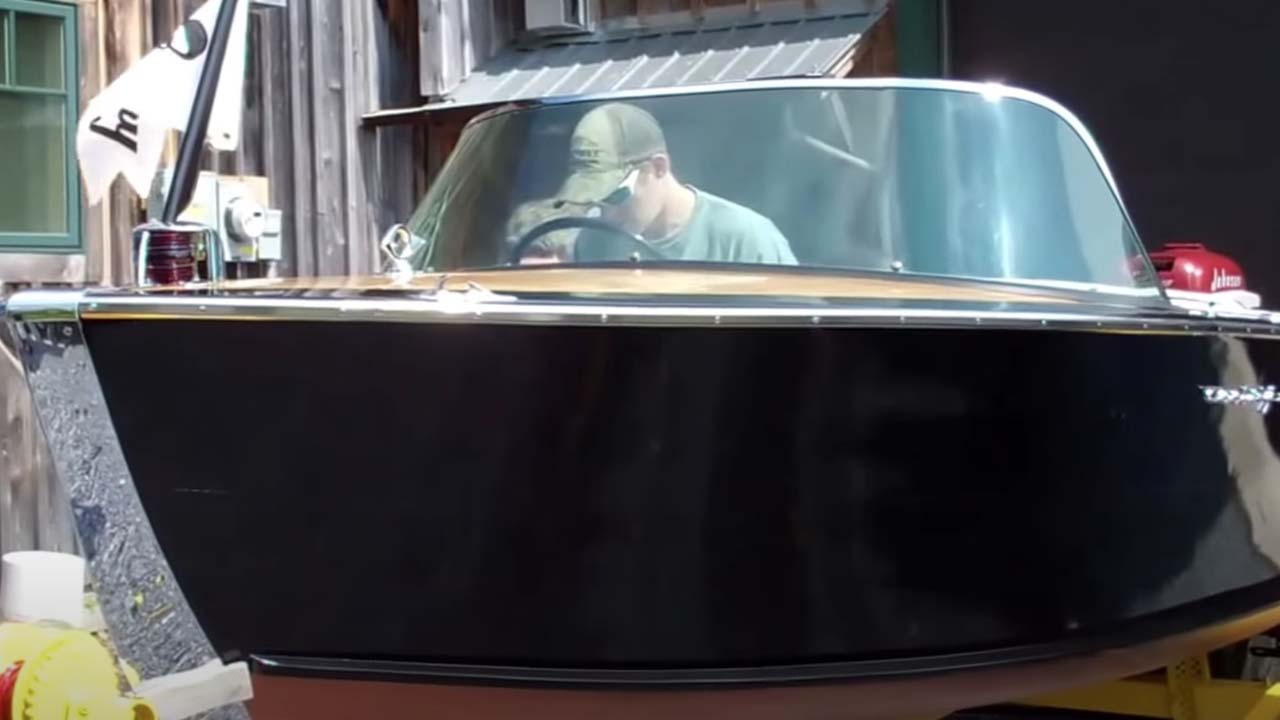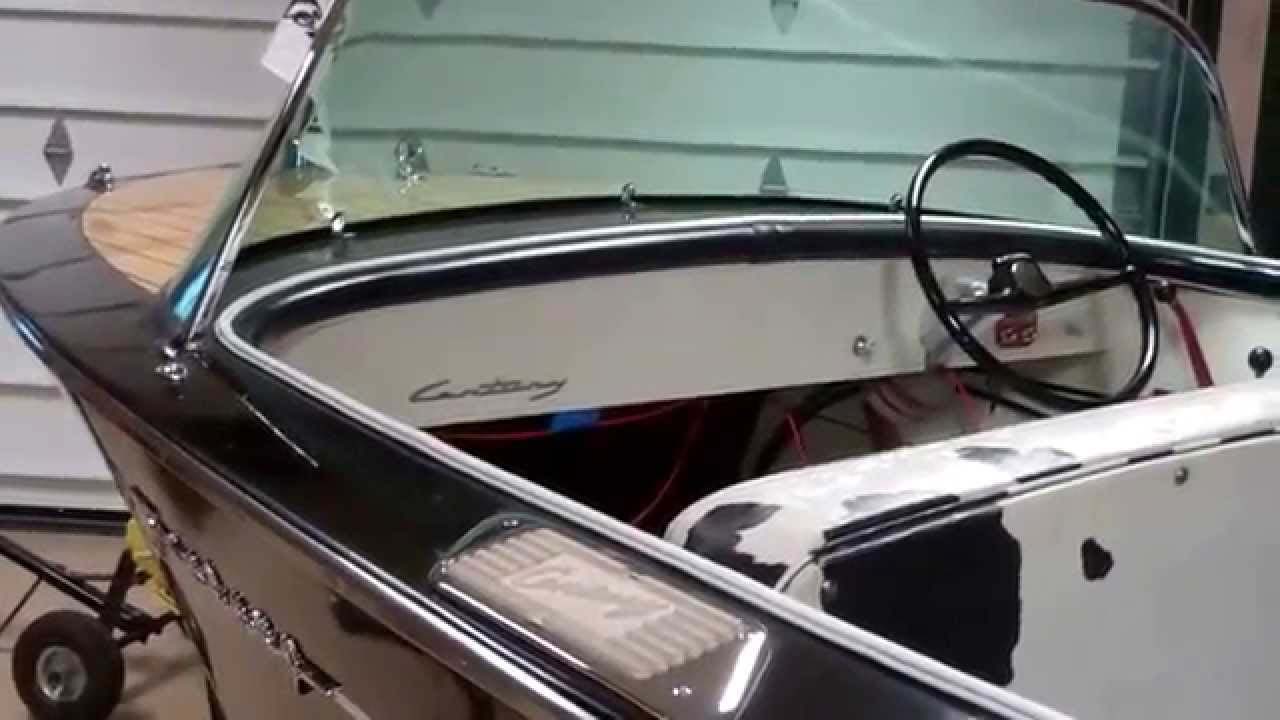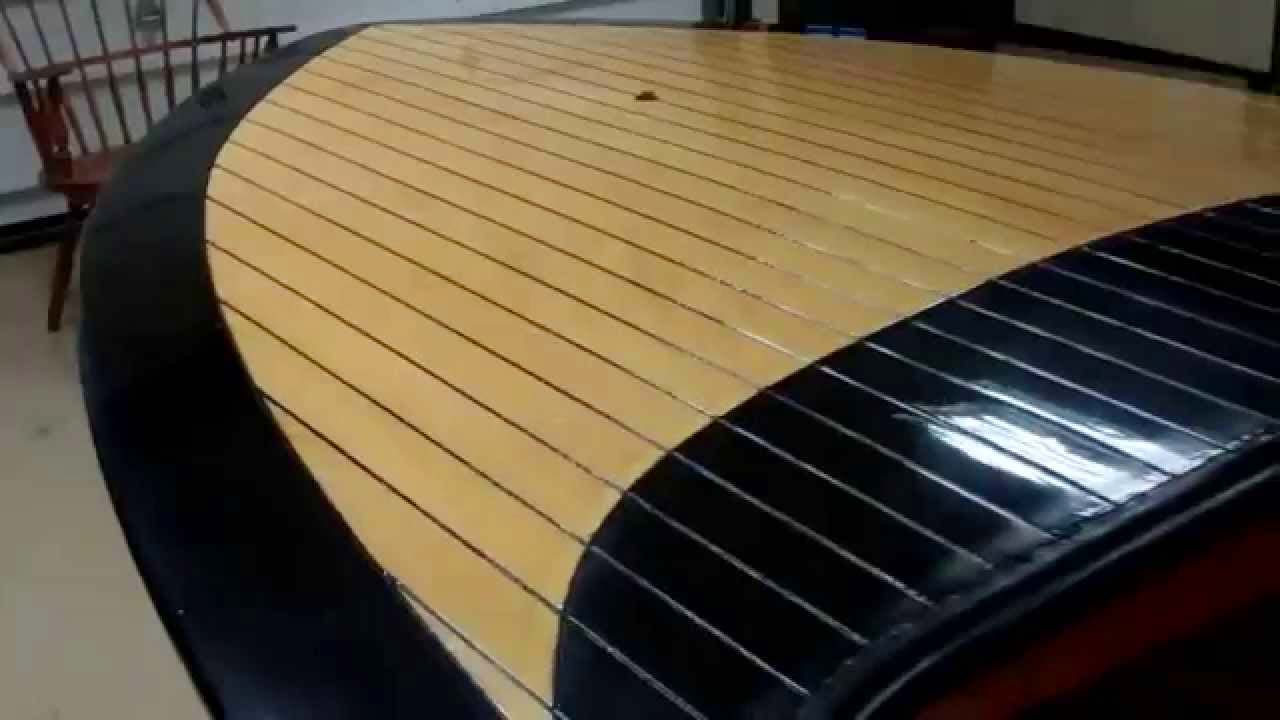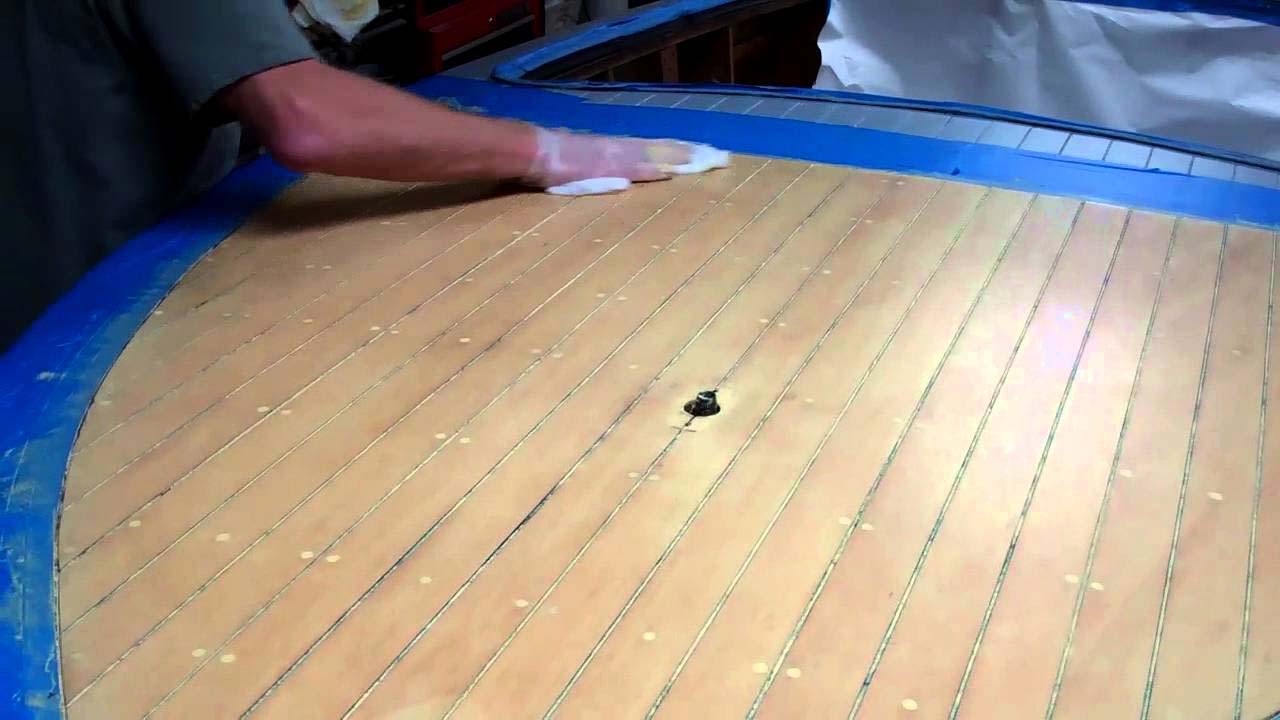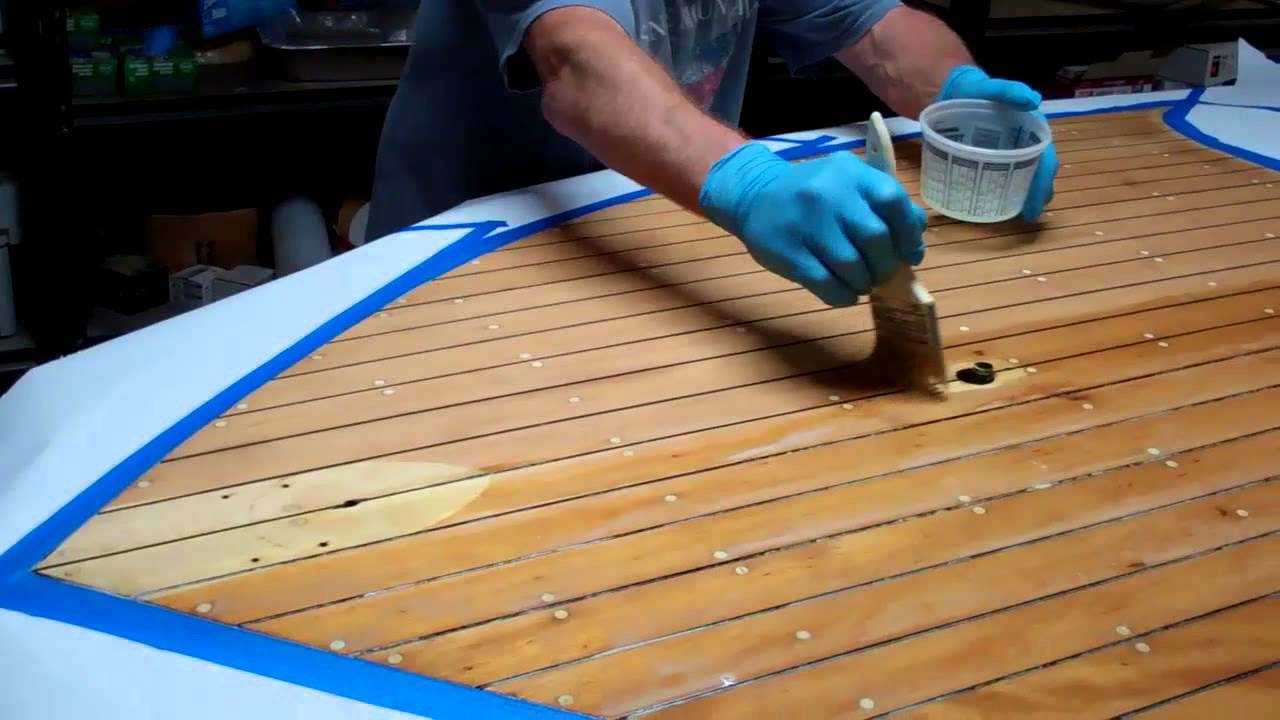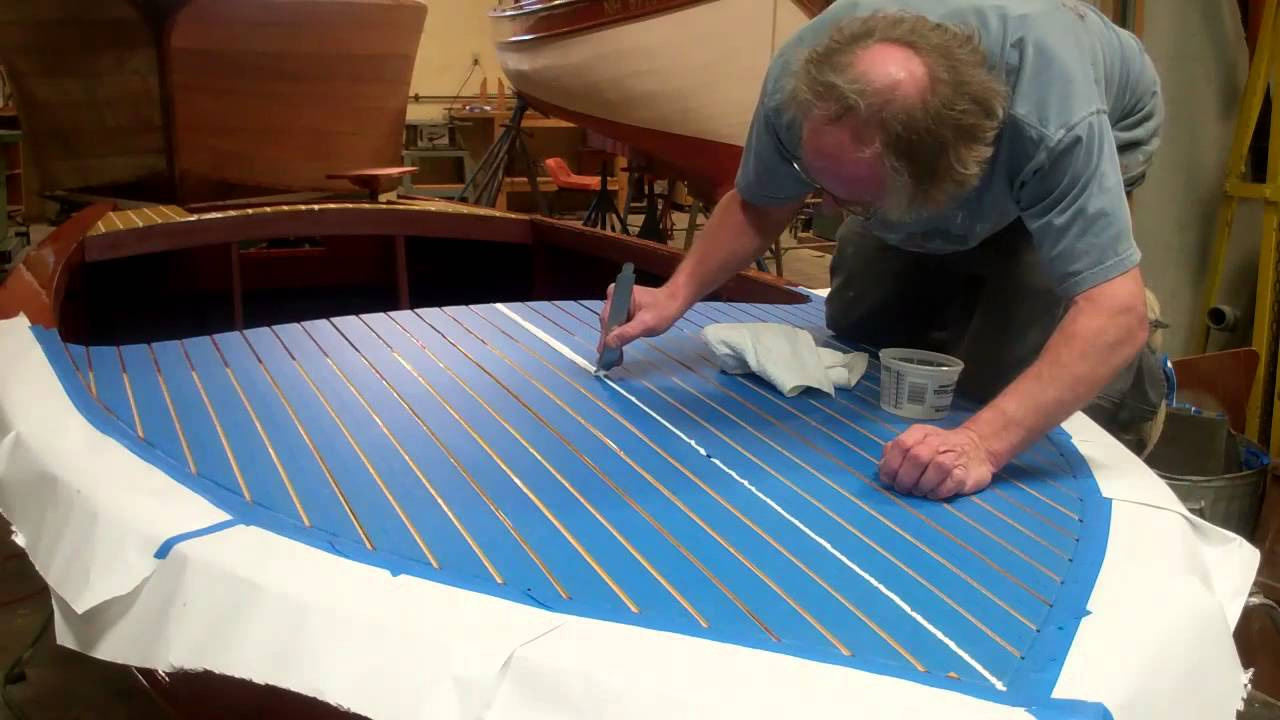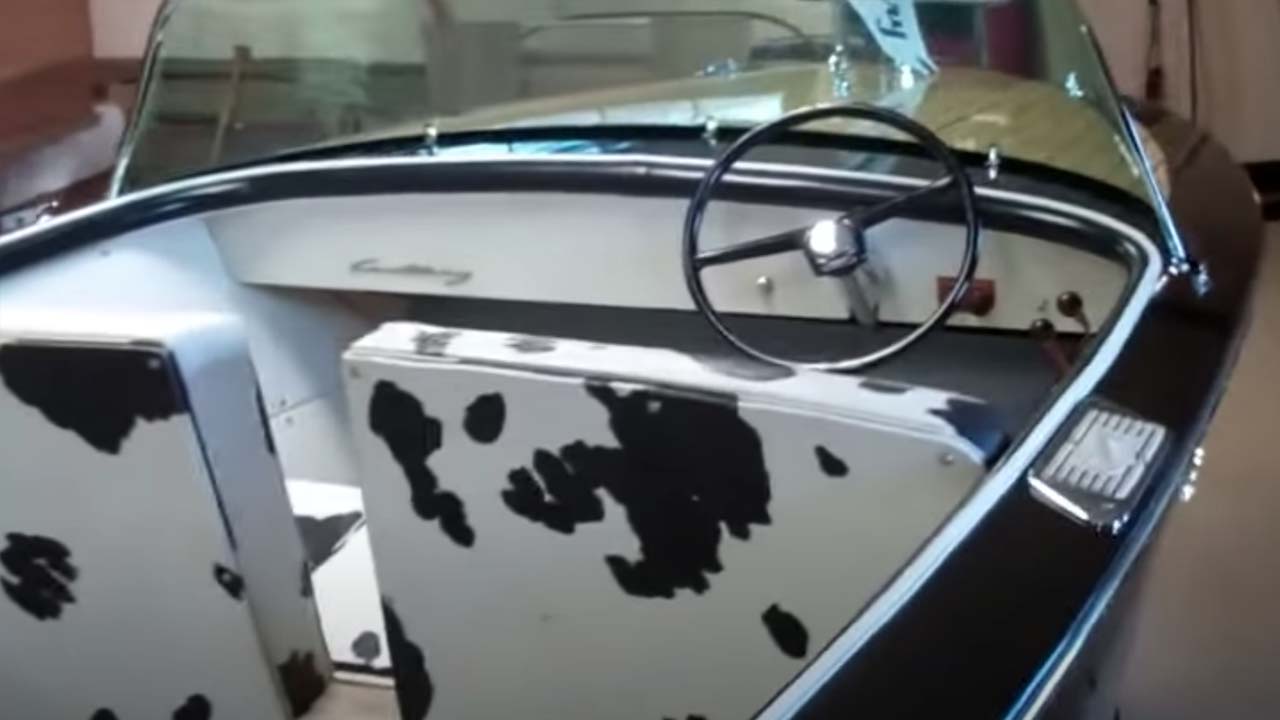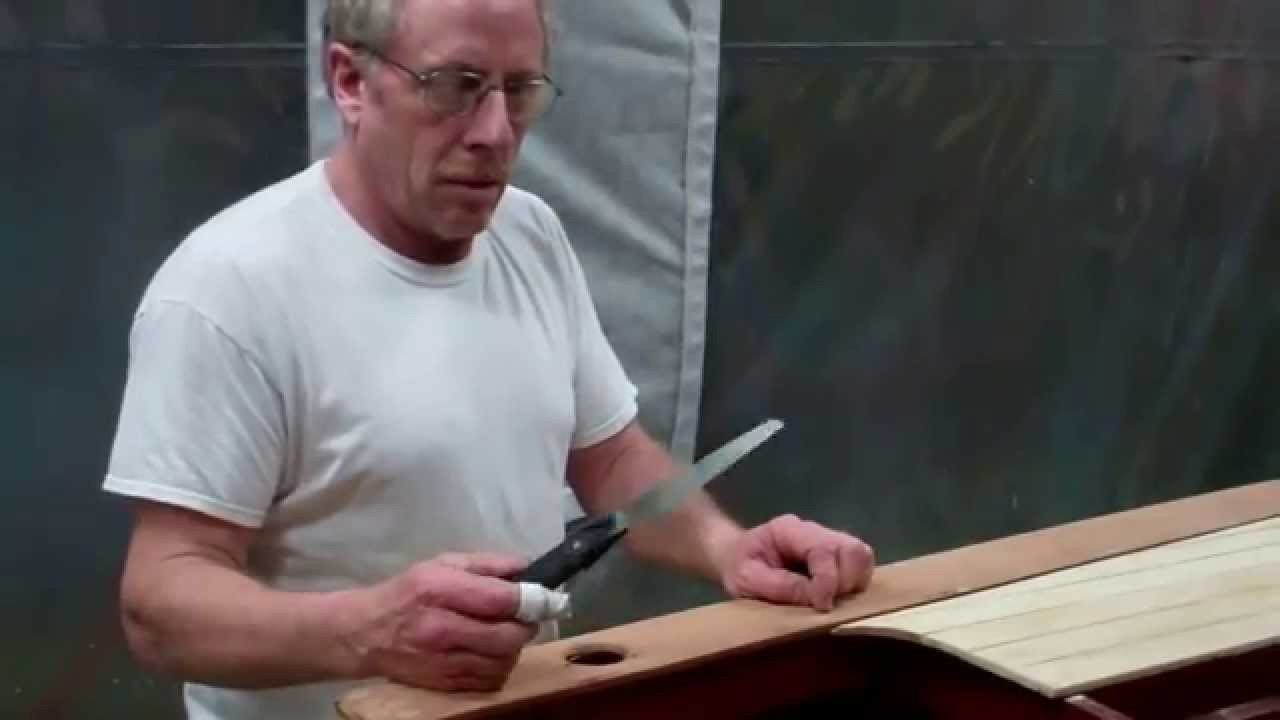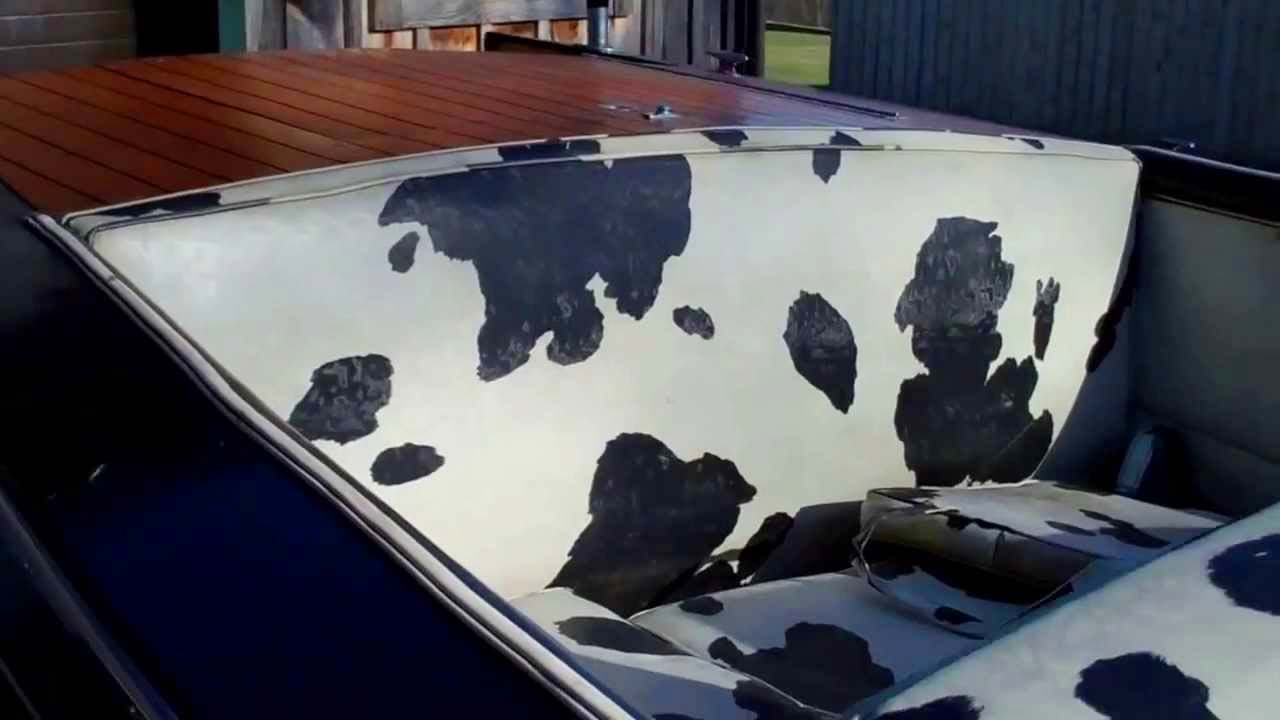Finally, after way, way too long, this 1956 Century “Cowhide” Palomino is on the water again! Her original engine is fresh from a comprehensive rebuild, so we did not push it to run a full throttle.
Still, isn’t she just so inviting cutting through the water!
Everything about this boat is completely original, save for the burgee and the seat cushions, but even they are original in a sense. I sourced the fabric – all that this firm still had in its old inventory – from the same company that supplied this fabric to Century in 1956. Indeed, I purchased all of what was left over from that year. So, while the foam inside them is today, the fabric used is 1956.
(We have kept the original cushions, and will include them with the boat and Tee Nee trailer when her next owner takes her home)
The Tee Nee, which RJ disassembled completely and then preserved, is original to the boat, as are her engine, hardware, gauges, steering wheel, badging, and all of her wood.
Nary a sliver of wood has been replaced.
Next owner? Yes, she is now officially residing in the Snake Mountain Boatworks showroom, and will appear on the Century Club and other sites shortly. She can be yours! If she is, you will own one of a very, very small, fewer than 6 as far as we have been able to find out, population of Cowhide Palominos.
Give us a call and we can explore the possibilities!
